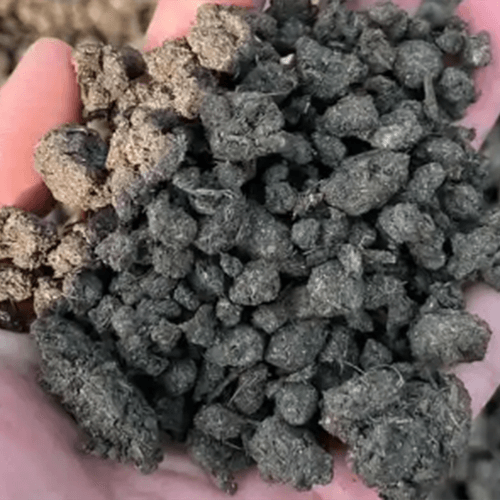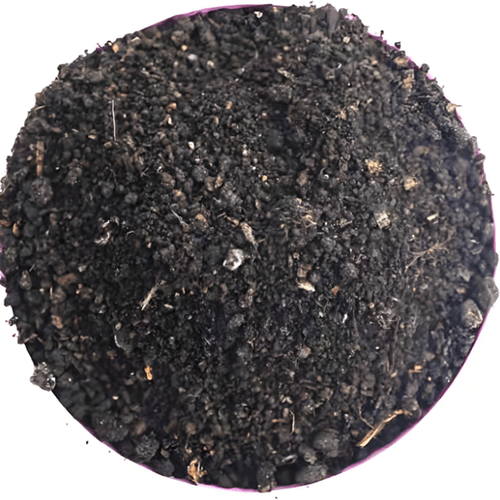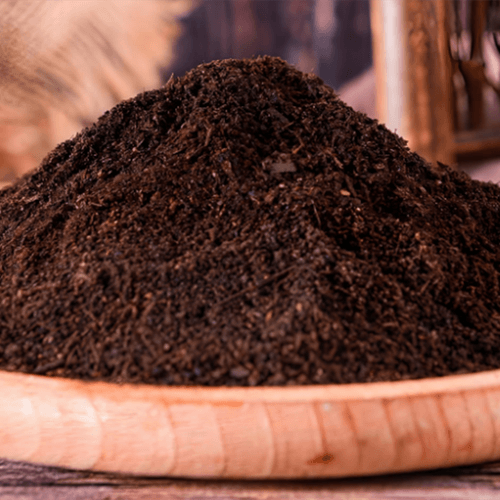Go Back

Biological Organic Fertilizer: Chicken Manure Fertilizer
Organic Matter: Chicken manure is rich in organic matter, with the content usually around 25%-30%. It can effectively improve the soil structure, enhance the soil's water and nutrient retention capacity, and increase soil fertility.
Macroelements: It is rich in macroelements essential for plant growth, such as nitrogen, phosphorus, and potassium. Among them, the nitrogen content is approximately 1.63%, the phosphorus content is about 1.54%, and the potassium content is around 0.85%. These nutrients can provide sufficient nutritional support for the growth of crops.
Medium and Trace Elements: It also contains medium elements such as calcium, magnesium, and sulfur, as well as trace elements such as iron, manganese, zinc, and copper. This is helpful for the comprehensive growth and development of crops, and can improve the stress resistance and quality of crops.
Other Components: Chicken manure contains a certain amount of substances such as amino acids and humic acid. These substances can stimulate the growth of crop roots and enhance the crop's ability to absorb nutrients.
Macroelements: It is rich in macroelements essential for plant growth, such as nitrogen, phosphorus, and potassium. Among them, the nitrogen content is approximately 1.63%, the phosphorus content is about 1.54%, and the potassium content is around 0.85%. These nutrients can provide sufficient nutritional support for the growth of crops.
Medium and Trace Elements: It also contains medium elements such as calcium, magnesium, and sulfur, as well as trace elements such as iron, manganese, zinc, and copper. This is helpful for the comprehensive growth and development of crops, and can improve the stress resistance and quality of crops.
Other Components: Chicken manure contains a certain amount of substances such as amino acids and humic acid. These substances can stimulate the growth of crop roots and enhance the crop's ability to absorb nutrients.
More Details
Advantages:
- Improve soil structure: The organic matter in chicken manure can increase the content of soil humus, promote the formation of soil aggregate structure, making the soil loose and breathable. It can enhance the soil's water and nutrient retention capacity, improve the physical and chemical properties of the soil, and create a favorable soil environment for the growth of crop roots.
- Enhance soil fertility: Chicken manure fertilizer decomposes and transforms in the soil, continuously releasing nutrients and cultivating soil fertility. Long-term use can effectively improve the basic fertility of the soil and reduce the amount of chemical fertilizers used.
- Promote crop growth: The abundant nutrients can meet the needs of crops at different growth stages, promoting the development of strong and healthy crop roots and robust plants. It can improve the stress resistance of crops, such as drought resistance, cold resistance, and disease resistance, thus increasing the yield and quality of crops.
- Environmentally friendly and sustainable: The rational use of chicken manure to make organic fertilizer can convert breeding waste into valuable resources, reduce environmental pollution, achieve the recycling of agricultural waste, and meet the requirements of sustainable agricultural development.
Disadvantages
- Raw fertilizer burning roots: When raw chicken manure is directly applied to the soil, a large amount of heat will be generated during the fermentation process, which is likely to cause the phenomenon of root burning and seedling burning of crops, affecting the normal growth of crops.
- Spread of diseases and pests: Raw chicken manure may contain a large number of harmful organisms such as pathogenic bacteria, insect eggs and weed seeds. If it is used directly without treatment, it will increase the risk of crop diseases and pests, spread diseases, and affect the yield and quality of crops.
- Odor pollution: Chicken manure will produce a pungent odor during the stacking process, which will pollute the surrounding air environment and affect the quality of life of residents. Especially in densely populated areas, the odor problem may lead to neighborhood disputes.
Fermentation treatment methods
- Natural composting fermentation: Stack the chicken manure in a ventilated and sunny place to form a pile with a height of 1-1.5 meters, a width of 2-3 meters, and an unlimited length. Turn it over every 10-15 days to ensure sufficient oxygen inside the pile and promote the activity of microorganisms. During the composting process, some substances such as straw, sawdust, and peat can be appropriately added to adjust the carbon-nitrogen ratio of the compost and accelerate the fermentation process. Generally, after 2-3 months, the chicken manure can be decomposed.
- Microbial fermentation: Using special microbial agents for fermentation can accelerate the decomposition speed of chicken manure and improve the fermentation quality. Mix the chicken manure evenly with an appropriate amount of straw powder, wheat bran, etc., add an appropriate amount of the microbial agent according to the instructions for using the agent, and stack it into a pile after thorough stirring. Control the humidity of the pile at 50%-60% and keep the temperature at 50-60°C. Turn it over every 3-5 days. After about 15-20 days, the chicken manure can be completely decomposed.
- 5.Scope of application: Chicken manure fertilizer is suitable for various agricultural crops and cash crops, such as vegetables, fruits, flowers, grain crops, etc. Whether it is open-field cultivation or protected cultivation, chicken manure fertilizer can be used as a base fertilizer or a top dressing. In fruit tree cultivation, chicken manure fertilizer can increase the sugar content and taste of the fruits; in vegetable cultivation, it can make the vegetables grow robustly and reduce the occurrence of diseases and pests.




